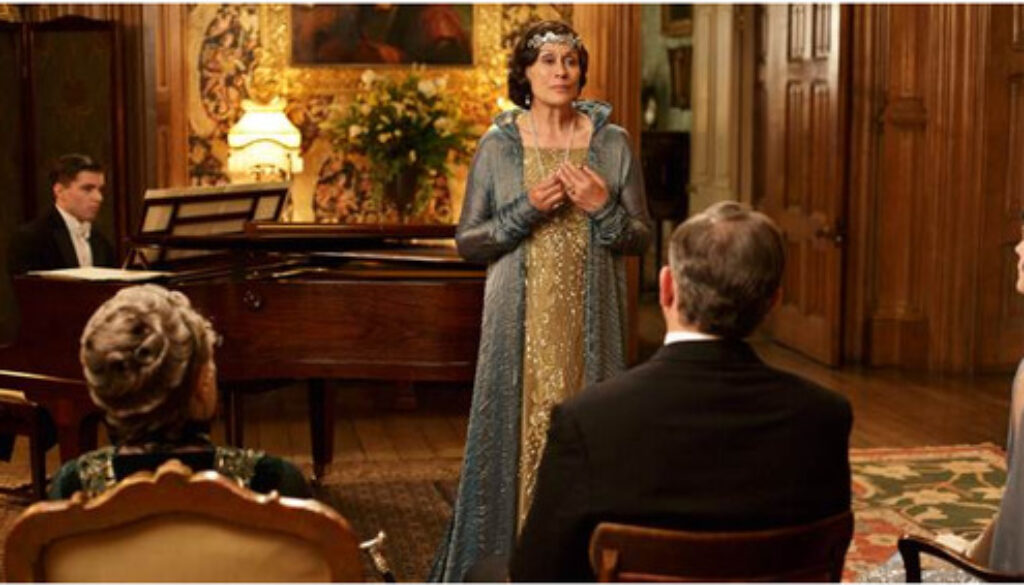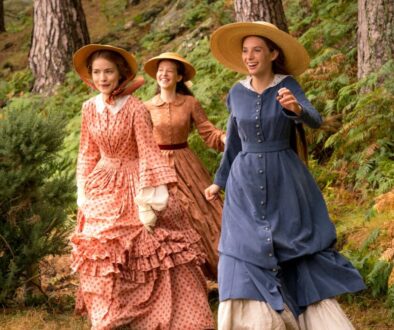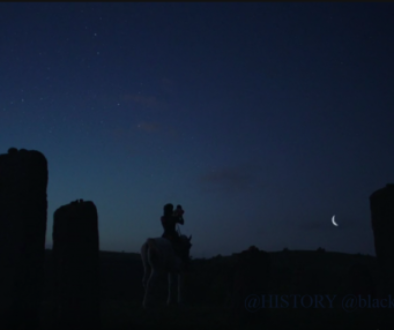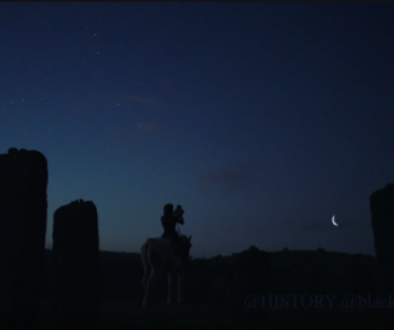Downton’s Blurred Lines
Readers, please forgive the bad pun, but it is highly appropriate given how much of tonight’s episode was about crossing lines of class and consent. [Photo courtesy of ITV]
SPOILER LINE. DO NOT CROSS
Dame Nellie Melba’s invitation to Downton is the mildest example of boundary breaking in the episode. Although the modern audience would consider opera and anyone in opera cultured and high class, that was not necessarily the case in the 1920’s. Some still believed anyone who made their living through performance, especially a woman, was not respectable. Although Nellie Melba was awarded a title from the royal family, she was still not good enough for some people. Carson more than anyone believes in the maintenance of the old social order. Also his disdain for his vaudeville past solidifies his unwillingness. Cora is angered by this regression in values; forcing Robert to cross the line and sit next to Dame Elba at dinner.
Branson feels trapped between two worlds, especially with all of the wealthy guests invited to stay in Downton. Throughout the episode he feels unwelcome in Downton’s social life. He can’t help thinking that he doesn’t belong socializing with the lords and ladies invited to dinner. Although he has firmly moved from servitude to leisure, deep down he believes will never completely belong in the upper class. Coping with the loss of Sybil compounds his identity crisis because he is also feeling the pressure to move on and choose a new spouse.
Enter Edna and the older widow. Both are pushing Branson in a direction he may not be completely willing to go. Edna reminds him of his past downstairs. The widow shows an interest in him when others in the room may be judging his very presence there. Neither realize that he is not ready to commit to anything more than pleasantries at the dinner table.
Towards the end of the episode, Edna appears to be forcing his hand towards his past with her offering of an alcoholic tonic. While Edna is attempting seduction, Mr. Green succeeded in his goal of rape. Anna’s attempts to be courteous to a visiting servant were purposely twisted as an invitation for
Many are already criticizing Downton for pushing the envelope too far in triggering negative emotions and even memories of past incidents for victims who are viewers. However, not only is this not the first time that Downton has tackled less than consensual sexual overtures (remember when Barrow kissed Jimmy?), this is also a fairly accurate depiction of how some female servants were treated. Downton has always been about showing the good and the bad of life back in the early 20th century, and Anna’s rape is no different.
Female servants were expected to keep much higher standards of sexual morality and were dismissed without reference for even the slightest infraction. Since married women in service was incredibly rare, most incidents were against single women. If a male servant assaulted a female servant, employers often blamed the victim for the incident instead of offering assistance with police reports or firing the perpetrator. A female servant who was assaulted or raped by members of the gentry in most cases had no recourse. Employers would consider the victim the aggressor and close ranks to prevent scandal from someone who was considered “spoiled goods”. Anna’s horrible reality was sadly another consequence of the imbalance of gender and class power at the time.
I look forward to next week where we can see how Anna copes with the aftermath as well as what happens to Branson. I expect even more lines on various topics to be crossed this season of Downton Abbey.
This review caused quite a stir on the “Downton Abbey” groups. Originally posted Jan. 14, 2014.




